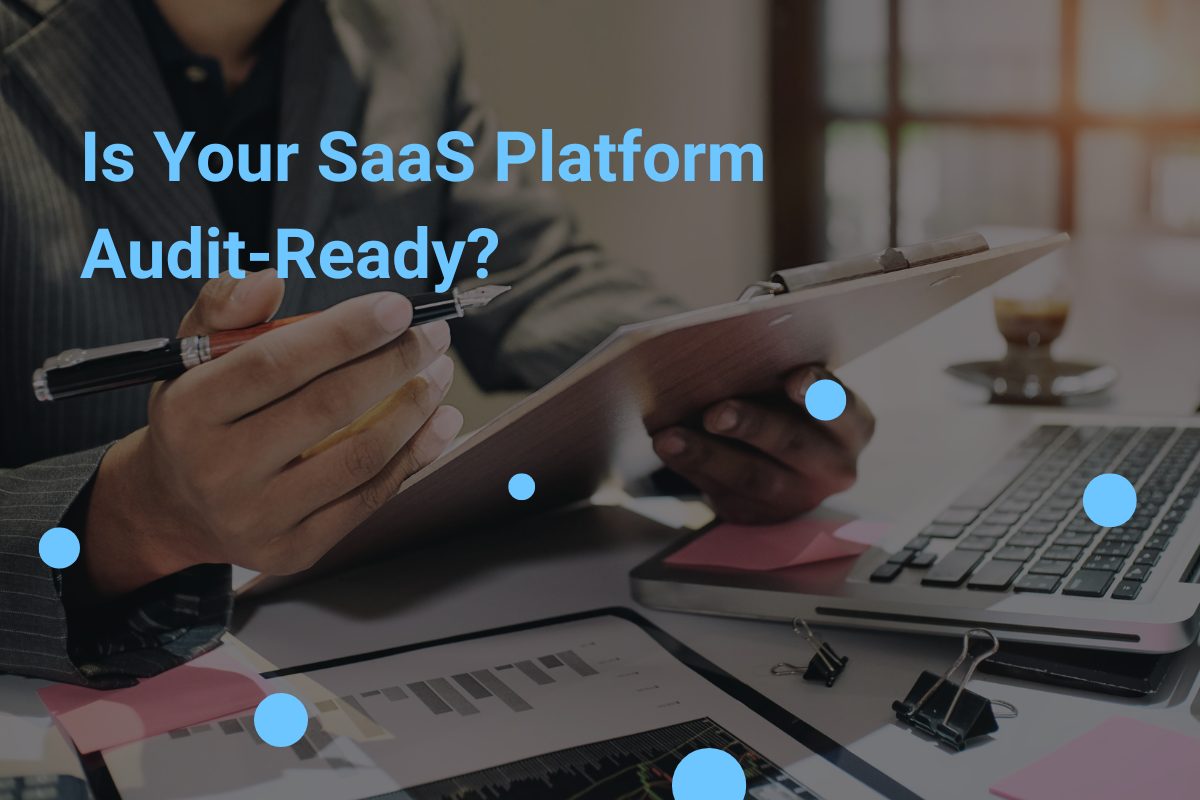For SaaS providers, especially those working with healthcare, financial services, or other regulated industries, being audit-ready isn’t optional—it’s a core requirement for building trust, winning enterprise deals, and staying compliant with industry standards.
Whether you’re preparing for SOC 2, HIPAA, or GDPR compliance, audit readiness is about more than checklists and paperwork. It’s about proving that your security practices, data controls, and operational processes are secure, repeatable, and well-documented.
In this article, we’ll explore:
Why audit readiness matters for SaaS companies
What auditors are looking for
Key components of an audit-ready platform
How to close the gaps before they become risks
Why Audit Readiness Matters for SaaS Providers
An audit isn’t just a one-time event—it’s a validation of your SaaS platform’s reliability, security, and maturity. For companies in sectors like healthtech, it’s often a prerequisite for doing business.
Here’s why being audit-ready should be on your radar:
Faster Sales Cycles
Procurement teams, especially in healthcare and finance, require proof of compliance before signing contracts. Audit-readiness streamlines the sales process and eliminates bottlenecks.
Increased Customer Trust
A clean audit (e.g., SOC 2 Type II) demonstrates your commitment to data privacy, uptime, and operational integrity, giving customers peace of mind.
Reduced Risk Exposure
Having controls and documentation in place means you’re better prepared for security incidents, legal inquiries, or regulator questions—minimizing potential fallout.
Stronger Internal Processes
Preparing for an audit helps teams document their processes, close gaps, and build a culture of accountability.
What Are Auditors Looking For?
While audit requirements vary by standard (e.g., SOC 2 vs. HIPAA), most audits focus on five core areas:
Security Controls – Are systems protected from unauthorized access?
Availability – Is your service reliably accessible as agreed in your SLAs?
Confidentiality & Privacy – How is sensitive data protected and managed?
Integrity of Processing – Are inputs and outputs handled securely and accurately?
Change Management – Can you show how updates and patches are deployed safely?
Tip: Auditors want to see evidence—not intentions. Documentation, logs, policies, and historical audit trails are essential.
Key Components of an Audit-Ready SaaS Platform
At Imagis, we help SaaS companies assess, implement, and manage the foundational elements of compliance. Here’s what we look for when evaluating audit readiness:
1. Access Management & Role-Based Permissions
Implement least-privilege access across all systems. Use Multi-Factor Authentication (MFA), SSO, and centralized identity management.
2. Policies & Documentation
Maintain up-to-date policies covering:
Data retention
Incident response
Change management
Vendor risk management
These should be formal, reviewed, and acknowledged by staff.
3. Logging & Monitoring
Use tools to monitor:
User activity
System access
Configuration changes
Retain logs securely and make them searchable for auditors.
4. Incident Response & Recovery Plans
Have a tested and documented plan for how your team handles cyber incidents, service outages, and data loss.
5. Data Backup & Business Continuity
Ensure your backup strategy supports fast recovery, geographic redundancy, and encryption. Perform regular disaster recovery drills.
6. Vendor Risk Management
Evaluate third-party vendors regularly. Use vendor risk assessments and ensure all vendors handling customer data meet your compliance requirements.
How Imagis Helps SaaS Teams Get Audit-Ready
We specialize in IT compliance and infrastructure support for SaaS and healthtech companies. With deep experience in HIPAA, SOC 2, and other audit frameworks, our managed IT and cybersecurity services help you:
Perform a gap analysis of your current security posture
Build or refine your documentation and policies
Implement and monitor technical safeguards
Run tabletop exercises for incident readiness
Prepare for external auditors with confidence
Don’t Wait for an Audit Request
Getting audit-ready isn’t a sprint—it’s a continuous investment in trust, credibility, and business resilience. The earlier your SaaS company embeds these practices, the better positioned you’ll be to win enterprise clients and scale securely.
Is your SaaS platform audit-ready? If not, now’s the time to close the gaps—before your next deal depends on it.
And don’t forget our other articles on this topic:
Cyber Insurance and Compliance: How it Can Help Your Business
Ready for a Better IT Experience?

